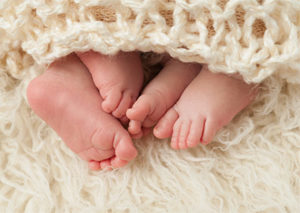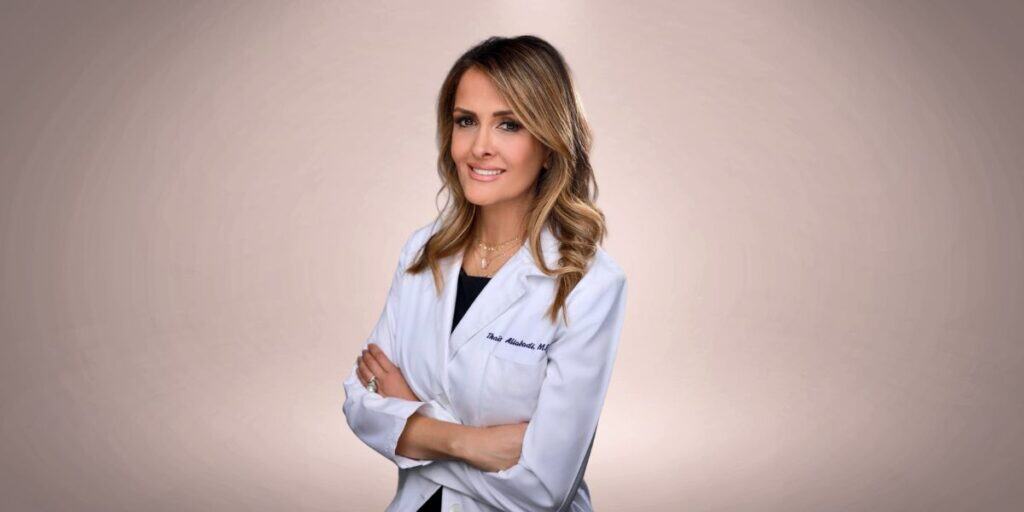What is Multiple Gestation?
Multiple gestations (or multiple pregnancies) is when a woman is pregnant with more than one fetus. She may be expecting twins, triplets, or more. Most women learn they’re pregnant with multiples during the first trimester. The signs of multiple gestations are usually more severe forms of the symptoms of pregnancy.
In humans, the average length of pregnancy (two weeks fewer than gestation) is 38 weeks with a single fetus. This average decreases for each additional fetus: thirty-six weeks for twin births, thirty-two weeks for triplets, and thirty weeks for quadruplets. With the decreasing gestation time possibly causing preterm birth, the risks from immaturity at birth and subsequent viability increase with the size of the sibling group. Only as of the twentieth century have more than four all survived infancy.
Recent history has also seen increasing numbers of multiple births. In the United States, it has been estimated a higher number of twin births, triplets, and higher-order births have resulted from conception by assisted reproductive technology.

Multiple gestations increase the risks of fetal abnormalities
Multiple gestations exhibit a significant increase in fetal growth abnormalities directly proportional to the number of fetuses. Pregnancies complicated by multiple gestations should be monitored serially for growth with ultrasound imaging. Although one fetus may develop differently (but normally) from the other in terms of size, most fetuses in multifetal pregnancies grow concordantly.
Growth abnormalities include one twin is small for its gestational age, both twins are small for their gestational age, or one twin is significantly smaller than the other twin although neither is small for their gestational age. Nonetheless, in most cases, the smaller twin will have a birth weight less than the tenth percentile. Poor fetal growth may be secondary to placental insufficiency, abnormal placentation, aberrant umbilical cord insertions, and/or intrinsic fetal disease.
Multiple pregnancies, such as twin pregnancies and triplet pregnancies or more have comprised an increasing proportion of the total pregnancies in the developed world due to older maternal age at childbirth and the expanded use of infertility treatments.
There are Two Types of Multiple Pregnancies
Identical
When more than one fetus originates from the same egg, we call them identical. A single egg is fertilized by a single sperm, and then the egg spontaneously splits into two genetically identical embryos. It’s unclear why this happens, and there’s no correlation between the likelihood of having identical babies and your race, age, or family history.
Identical twin gestation babies will all be the same sex and will have the same blood type. Although identical twins usually look very much the same (same eye and hair color, body type, etc), they don’t always look 100% identical. Many other factors play a role in shaping your child’s appearance. They’ll even have their own unique fingerprints!
Fraternal
When two or more eggs are fertilized by more than one sperm, the resulting babies are fraternal. Unlike identical pregnancies, fraternal pregnancies do run in families. If any relatives on your mother’s side had fraternal twins, the chances that you will have them too are greater. Fraternal pregnancies are also more common in women over 35, women of African descent, and women who have just quit taking birth control pills.
Although fraternal babies are very similar to each other due to having the same parentage, they are genetically different and will likely resemble each other as much as ordinary brothers and sisters do. Fraternal babies can be both sexes and may have different blood types.
Fertility Treatment and Multiple Gestations

Women undergoing fertility treatment are much more likely to have multiple gestations than other women. This is because fertility drugs boost your fertility potential by causing your ovaries to release multiple eggs at a time. This raises the odds that more than one egg will be fertilized in the same cycle.
With in-vitro fertilization, it’s common practice for the doctor to place more than one fertilized egg in the uterus at a time to increase the chances that at least one will implant and gestate to term. Of course, this also increases the likelihood of multiple gestations. The availability of assisted reproductive technology has contributed to the increase in multiple gestations seen over the past few decades.
Multiple gestations, particularly high-order multiple gestations, remain a significant problem in assisted reproduction, associated with poorer obstetric outcomes and neonatal complications of prematurity and low birth weight. As a result, numerous approaches have aimed to reduce the rate of multiple gestations.
The United States has taken a largely voluntary approach, with a series of published guidelines on the number of embryos transferred. These guidelines, based on age, prognosis, and day of ET, have gradually reduced the acceptable number of transferred embryos, particularly in women aged 37 and younger.
Are Multiple Gestations Riskier than Single Pregnancies?
Modern medicine has done wonders for increasing the safety of multiple pregnancies, but they still carry some risks. Carrying more than one baby increases the chances of:
- Pre-eclampsia. This is a disease that raises your blood pressure to dangerous levels.
- Gestational diabetes. Women carrying multiples have a high risk of gestational diabetes.
- Preterm birth. Multiple babies are more likely to be born prematurely, which hinders their development and puts their health at risk.
- Birth defects. Certain genetic disorders are more common in multiple gestations.
- Miscarriage of one or more of the fetuses.
- Low birth weight.
- Cerebral palsy. Preterm multiples also have a greater risk than single preterm babies of the same gestational age for serious complications that can lead to cerebral palsy.
- Iron-deficiency anemia has also been linked to preterm delivery and other adverse pregnancy outcomes.
- Multiple gestations are associated with an increased risk for intrauterine growth restriction.
Although these conditions are more common with multiple pregnancies than single pregnancies, most women carrying multiples have uncomplicated pregnancies that result in safe live births and healthy children.
What Should I Expect With a Multiple Gestation?
If you are carrying twins, triplets, or more, your gynecologist will be able to detect them during a routine ultrasound. You may be able to hear more than one heartbeat and go home with a sonogram that shows each of your fetuses. Your doctor will also be able to tell you if they’re healthy and developing as expected.
More frequent prenatal visits. Multiple gestation pregnancies increase the risk of complications. Women with multifetal pregnancies are usually seen more regularly by doctors than those with singleton pregnancies because of the higher risks of complications.
Carrying more than one fetus is harder on your body, so your OB/GYN or health care doctor will want to check up on your health as well. You should expect regular blood and urine tests and careful monitoring of your blood pressure. When you are pregnant with twins, you need an extra 600 calories a day. For triplets and more, weight gain should be individualized to fit your needs.
The typical recommendation for the birth method of triplets and higher-order multiples is a cesarean delivery, but twins are often delivered vaginally. Multiple-birth infants are usually admitted to neonatal intensive care immediately after being born for examination.
Women with multiples are more likely to be hospitalized with complications, including preterm labor, preterm premature rupture of membranes, preeclampsia, placental abruption, pulmonary embolism, and postpartum hemorrhage.
Leading the Way in Women’s Health – Dr. Thaïs Aliabadi
Recognized as one of the nation’s top OB/GYNs, Dr. Thaïs Aliabadi combines world-class expertise with a deep commitment to personalized, compassionate care. With decades of experience and a dedication to truly listening to every patient, she ensures that every woman who walks through her doors feels heard, supported, and empowered in her health journey.
We invite you to establish care with Dr. Aliabadi. Please make an appointment online or call us at (844) 863-6700.
The practice of Dr. Thais Aliabadi and the Outpatient Hysterectomy Center is conveniently located for patients throughout Southern California and the Los Angeles area. We are near Beverly Hills, West Hollywood, Santa Monica, West Los Angeles, Culver City, Hollywood, Venice, Marina del Rey, Malibu, Manhattan Beach, and Downtown Los Angeles.
















